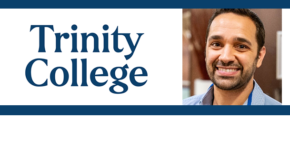 What are micro credentials?
What are micro credentials?
Daniel Douglas, lecturer in sociology at Trinity College, explores these.
Daniel Douglas is a Lecturer in Sociology & Director of Social Science Research at Trinity College in Hartford, CT. He is also a Senior Researcher at the Education and Employment Research Center at Rutgers University. Douglas’ research focuses on student access and success in higher education, and the relationship between college education, workforce training, and employment. His recent published work examines mathematics in post-secondary education, and college and career pathways in STEM. His work has been featured in Inside Higher Education, The Washington Post, USA Today, and The Hechinger Report.
What Do We Know About Micro-Credentials?
As private firms and governments struggle to fill jobs, and with the cost of college too high for many students, employers and policymakers have searched for alternative routes to good jobs without college degrees. Micro-credentials are one such alternative, but can they solve the problem?
Like degrees, micro-credentials certify peoples’ skills and knowledge. You can earn a micro-credential for a skill you already have by taking an assessment, or you can earn one after completing a short learning experience. They can certify broad skills like critical thinking, or specific skills like Microsoft Excel. They’re usually completed online, and result in digital badges that can be shared on online profiles and viewed by employers.
Micro-credentials are offered by colleges and universities, professional organizations, and private companies. But they are not regulated by federal or state law, nor by accreditation agencies. Federal regulation could affect some micro-credential programs if H.R.6585 – “Short-Term Pell” – becomes law. But a lack of regulation means a lack of data, so researchers know very little about people pursuing micro-credentials.
My colleagues and I surveyed students in non-credit programs at two community colleges. Like micro-credentials, these programs were workforce-oriented, short-duration, and often at least partially online. The students were older than traditional college students, and many already had college degrees. Most were seeking advancement in their current jobs, exploring new careers, and/or looking to escape low-wage work.
Back to the regulation problem, we don’t know whether micro-credentials lead to better jobs. A review of existing studies on non-degree credentials, including micro-credentials, found that outcomes like hiring and wages varied widely. Micro-credentials in high-demand fields like IT and construction appeared more valuable than those in office administration or education.
But lacking systematic evidence, micro-credentials should be viewed at this point as a supplement to degrees, not a replacement for them.
Read More:
What are Microcredentials? And are they worth having?
https://theconversation.com/what-are-microcredentials-and-are-they-worth-having-224601
Noncredit Students at Two Community Colleges: Who are they and what are their experiences?
Review of Recent Research on Noncredit Outcomes. https://smlr.rutgers.edu/sites/default/files/Documents/Centers/EERC/Review%20of%20Noncredit%20Outcomes_EERC_1.4.24.pdf
